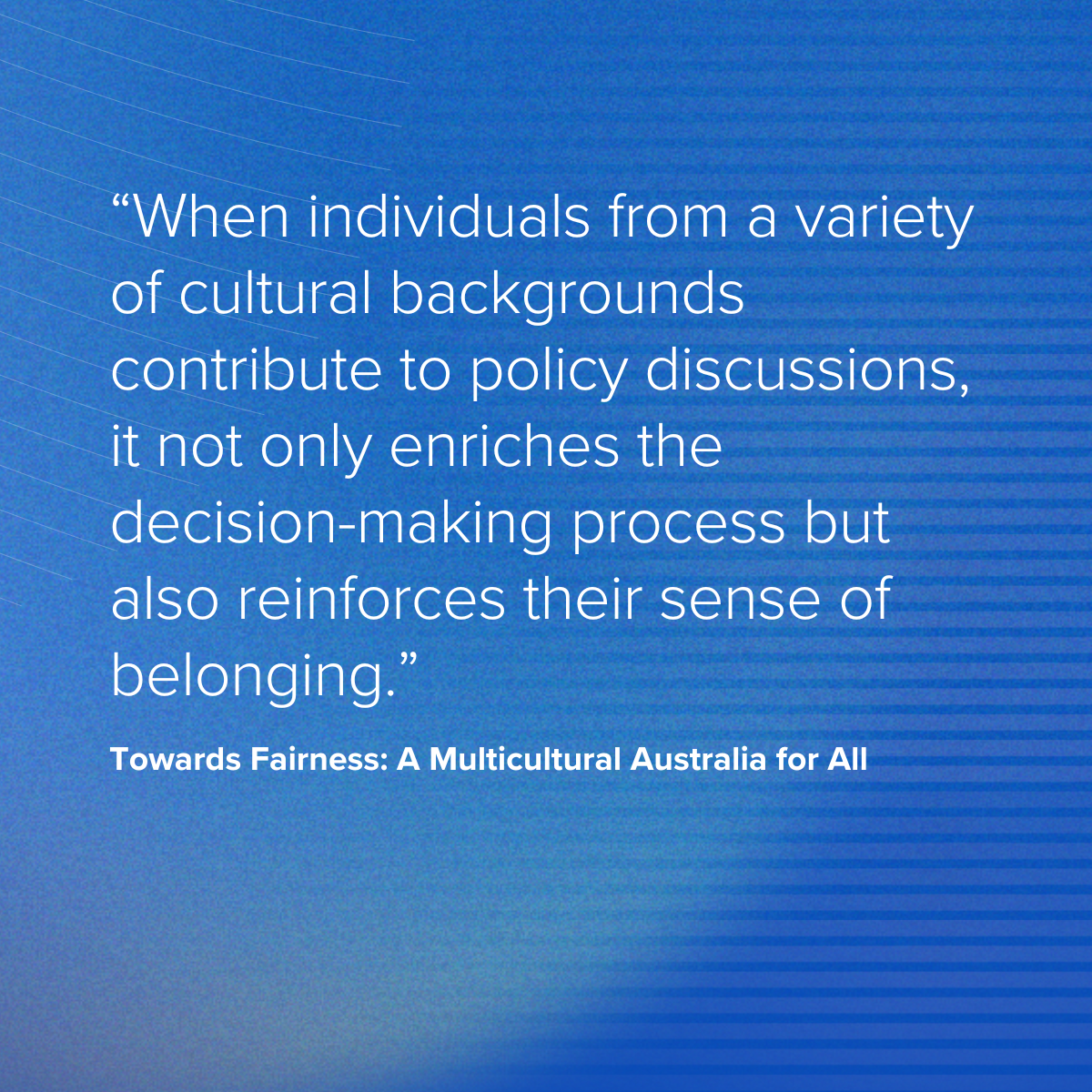Beyond Translation: 3 Ways to Better Engage Your Multicultural Communities
Introducing the Multicultural Framework Review
This week, the Department of Home Affairs released its Multicultural Review Report, ‘Towards Fairness: A Multicultural Australia for All’. Informed by 216 public consultations across Australia, this Review takes a deep dive into the state of multiculturalism in Australia and charts a clear path forward for all Australians to contribute to a shared sense of belonging and identity for all people.
“When individuals from a variety of cultural backgrounds contribute to policy discussions, it not only enriches the decision-making process but also reinforces their sense of belonging.”
One of the central themes which emerged from the submissions received was the desire for multicultural communities to be part of decision-making processes.
Whilst language barriers are often cited as a key barrier to inclusion within multicultural communities, it is crucial that strategies to engage multicultural communities goes beyond mere translation.
“Authentic community activities should be inclusive and responsive to the needs and aspirations of diverse groups.”
3 Ways to Better Engage Multicultural Audiences
Local knowledge is crucial to understanding the specific cultural protocols and nuances of your multicultural community.
It is important to delve deep into the traditions, customs, and everyday practices that define the various cultural groups within your community. Communicating across cultures requires an understanding of the specific history, lived experiences, beliefs, and values of a group of people. This means not only knowing the major historical events that have shaped a culture, but also recognising the subtle, everyday experiences that influence how individuals from that culture perceive the world.
Being aware of these elements allows for more effective and respectful communication, fostering a more inclusive and harmonious environment.
Establishing mutually beneficial relationships with key stakeholders can help to build trust within your target audience, as well as provide valuable insights into their needs and preferences. Additionally, consider implementing joint initiatives and projects that address common goals and concerns, thereby fostering a sense of partnership and commitment to shared success.
By identifying common values and interests, such as mediums such as the arts, food, or sport, you can tap into powerful tools that transcend cultural and linguistic barriers. For instance, organising art exhibitions, food festivals, or sporting events can create enjoyable shared experiences between individuals from diverse backgrounds. These activities not only provide an opportunity for people to engage with each other on a personal level but also help foster a sense of connection and belonging.
By participating in these shared experiences, individuals can build mutual understanding and respect, which ultimately helps to breakdown barriers to participation and promotes inclusivity in various social settings.
Engaging multicultural audiences requires a deep understanding and respect for their unique cultural contexts. The Multicultural Review Report, ‘Towards Fairness: A Multicultural Australia for All’, underscores the importance of involving multicultural communities in decision-making processes to foster a shared sense of belonging. While language barriers present challenges, true inclusion demands more than translation; it requires genuine engagement through culturally informed strategies.
By delving into local knowledge, collaborating with trusted community leaders, and finding universal ways to connect, we can create authentic and meaningful connections. These approaches not only enrich our communities but also reinforce the idea that diversity is a strength, enhancing the social fabric of Australia.
Through these efforts, we can build a more inclusive society where everyone feels valued and connected, paving the way for a brighter, more harmonious future for all Australians.
Want to learn more about how you can better engage your multicultural communities? Get in touch and see how we can help develop a tailored community engagement plan for your specific needs.

